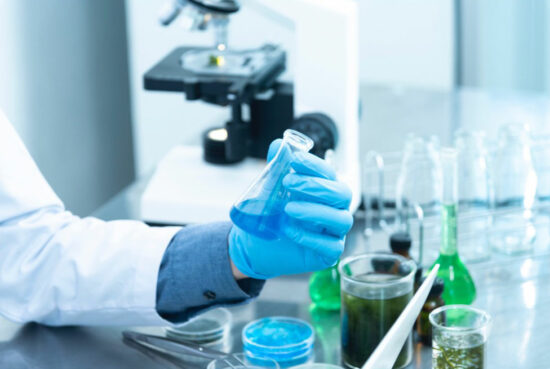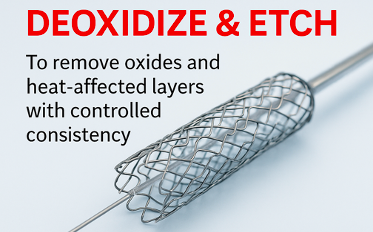Understanding Nitinol Electropolishing at Room Temperature
Nitinol, a unique nickel-titanium alloy, is prized in the medical device industry for its shape memory, superelasticity, and biocompatibility. From stents and guidewires to heart-valve frames and bone staples, this material plays a critical role in lifesaving and life-enhancing technologies. However, ensuring its safety and performance depends heavily on surface treatment processes, especially electropolishing.
What Is Electropolishing and Why Does It Matter?
Electropolishing is an electrochemical process that smooths, brightens, and passivates metal surfaces. For medical implants, it’s essential for:
- Removing surface irregularities and embedded particles
- Creating a uniform oxide layer that enhances corrosion resistance
- Reducing nickel ion release for better biocompatibility
- Minimizing bacterial adhesion and improving cleanliness
When applied to Nitinol, electropolishing must be carefully controlled to maintain the material’s surface integrity while enhancing its functional properties.
The Traditional Approach: Cold Methanol-Based Electropolishing
Historically, Nitinol electropolishing relied on a mixture of methanol and sulfuric acid chilled to –40 °C or colder. While effective, this method poses several challenges:
- Requires specialized ultra-low temperature equipment
- High energy costs for cooling and safety concerns related to methanol
- Process instability due to temperature fluctuations
A Safer Alternative: Room-Temperature Electropolishing
Innovations in chemistry have led to new, room-temperature electropolishing solutions. These formulations, often based on non-aqueous organic acids, can deliver similar surface quality without the need for deep refrigeration.
Key benefits of room-temperature electropolishing:
- Operates in the 10–25 °C range, simplifying process control
- Reduces equipment complexity and startup time
- Minimizes risk of condensation and bath freezing
- Maintains high-quality surface finishes on intricate geometries
Application in Medical Devices
Room-temperature electropolishing is particularly useful for:
- Stents and fine wire components, where consistency and delicate surface control are critical
- Implantable devices, where nickel release must be minimized to meet biocompatibility standards
- Prototypes and custom implants, where flexibility in process setup is beneficial
The resulting surfaces show improved corrosion resistance, smoother finishes, and reliable passivation, all critical for long-term implant performance.
Points to Consider When Choosing a Process
When deciding between traditional and room-temperature electropolishing, manufacturers should consider:
- The complexity of part geometry
- Regulatory requirements for surface finish and cleanliness
- Facility capabilities and energy costs
- Safety and waste handling protocols
Understanding the chemistry behind each option, and its impact on device performance, helps ensure compliance, safety, and long-term reliability in the field.
Room-temperature Nitinol electropolishing represents an important advancement in medical device manufacturing. By reducing process complexity and environmental risks while maintaining surface performance, it supports a more sustainable and consistent production environment.
Whether you’re refining a legacy process or scaling up a next-generation implant, knowing how electropolishing chemistry affects material behavior is key to ensuring optimal outcomes.
About RBP Chemical Technology
RBP Chemical Technology is a global leader in the development of surface treatment chemistries for advanced manufacturing. With deep experience in medical device applications, RBP offers a range of electropolishing, cleaning, and passivation solutions tailored to the performance and regulatory demands of today’s implantable devices. Through collaborative development and rigorous quality control, RBP supports manufacturers in achieving safer, more effective, and more efficient processes.




